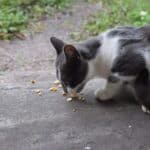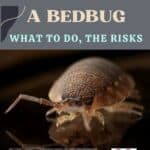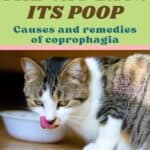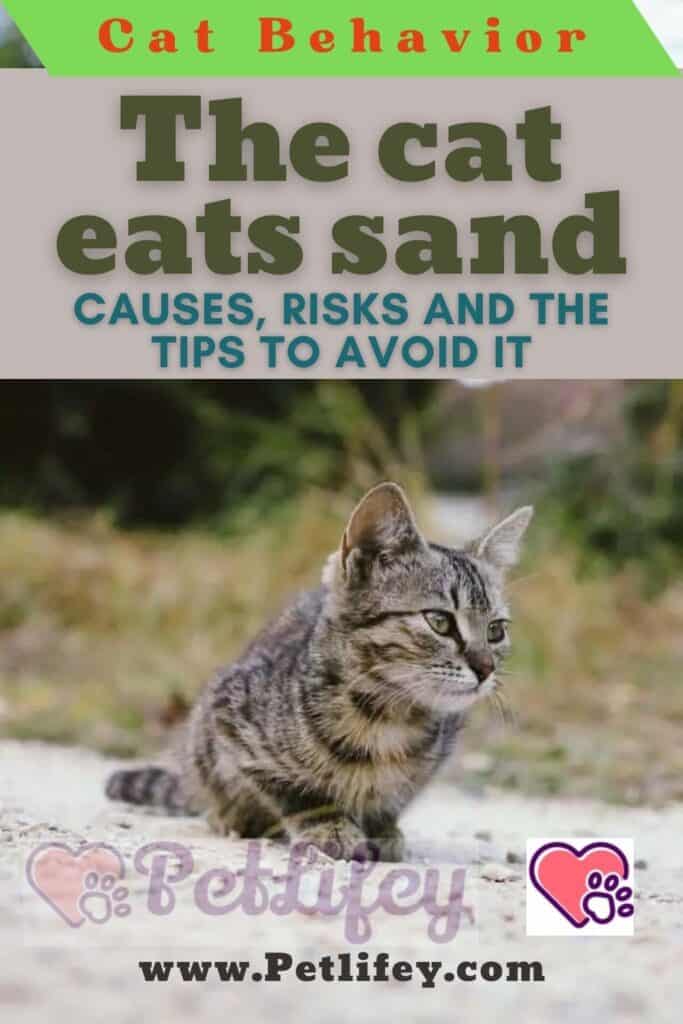
Is your cat attracted to sand enough to ingest it? Here are the possible reasons and how to stop him from doing it in order to avoid taking risks.
The strange behaviors on the part of our Pet friends will never cease to surprise us: one of these is certainly the fact that the cat can be attracted to the sand of its litter, or even to the sand of the sea. Well, what is wrong with this grainy powder that he likes so much? If we think that this litter in the litter is used to absorb his feces and urine, the question becomes even more obvious.
The cat eats sand: the reasons
If a dog suffering from coprophagia is stimulated to eat its own faeces or those of a similar one, a cat that ingests the sand impregnated with its needs may not arouse particular perplexity. The causes of this strange behavior could be of a physical nature and the result of an inner malaise, but also of a pathological nature. Equally, the reason could simply be linked to the lack of experience of a cat that is entering life and wants to explore the surrounding world.
The pica
As in the case of a dog that eats stones and other objects, a cat could also be affected by pica if it ingests substances and other materials that are not normally part of a healthy and balanced diet. The causes of this pathology are to be found in the lack of stimuli, stress and boredom, or linked to jealousy for a newcomer both when a baby arrives and when two cats live together. Some experts argue that there are cat breeds that are more prone to pica, such as the Siamese or Burmese.
Pancreatic insufficiency
When the pancreas in cats is not functioning well and the cat has digestive problems and suffers from indigestion, they are unable to assimilate food well. To cope with this strong sense of heaviness sometimes catnip alone is not enough: therefore they also resort to other materials, such as sand. It is not uncommon for them to be encouraged to eat soil as well, or paints and other similar materials, which can easily lead to intoxication and poisoning.
Kidney failure
A cat that has difficulty urinating tends not to eliminate excess toxins from their body. This abundance of toxins in his body prompts him to have an altered sense of taste and to recognize as good some flavors he would normally avoid.
Discovery of the world
If we think of kittens who do not yet have experience of their surroundings, we can imagine that they explore with a sense of taste everything around them. Over time and especially with experience they will understand what they like and what can actually damage their stomach, and they will stay away from it. Educating a puppy will also make him understand that they should not eat the sand as it is used to absorb their feces: maybe bringing a little of this sand mixed with excrements can be useful.
What happens if the cat eats sand: the risks
Ingesting this powder which is normally used to absorb cat feces and urine can have very dangerous consequences for the health of our cat. One of the first problems it involves is certainly intestinal blockage. Usually the cat that ingests a few grains of this sand is able to expel it from the intestine without serious consequences, but if it ingests in large quantities this sand solidifies inside and becomes hard as a stone. It may even happen that the vet deems surgery necessary for its removal. Another consequence could be lack of appetite since a cat that feels weighted does not want to eatto put more in his stomach: this could lead to excessive thinness. Other ailments could be linked to nausea: the blocked intestinal tract could in fact push him to free himself with retching. Catnip in this case could be a valid ally as it helps the cat digest.
What to do if the cat has eaten the sand
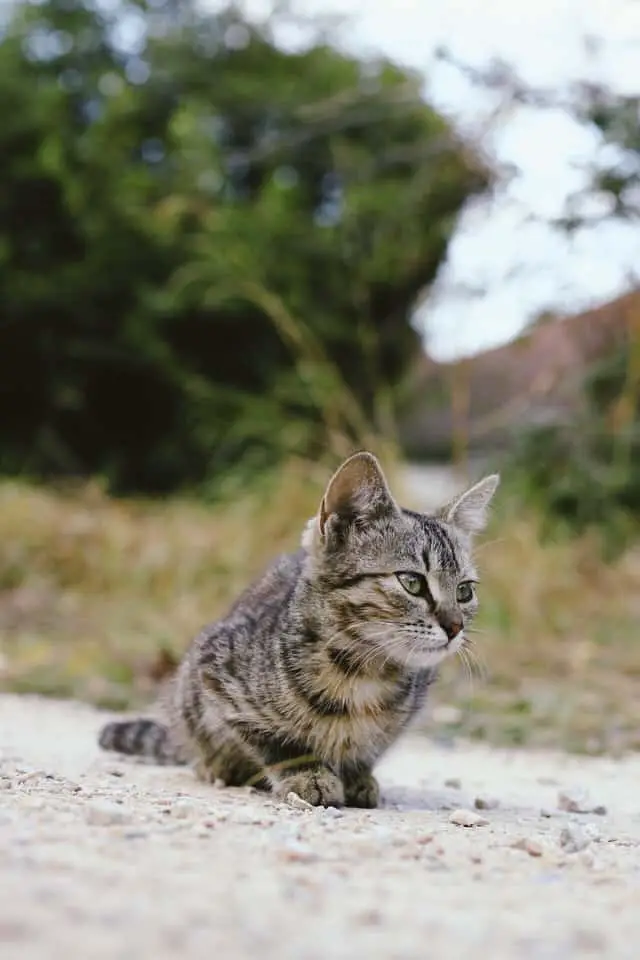
Finding out why your cat eats sand is important above all to understand how to act and deal with the problem. it could be something that has to change in our behavior or make its world stimulating and different: in short, here is what we can do to prevent the cat from eating the sand in its litter box.
Visit to the vet
Not only is it useful to find out if ingesting the sand has led to more or less serious health problems, but also to understand what are the underlying causes of this unusual behavior: if a cat, both small and adult, starts to eat the litter box pre-existing organic diseases must be excluded. If the cause is pathological, and therefore linked to renal or pancreatic insufficiency, it must be treated and treated to eliminate the problem at the origin.
Relieve stress
If the cat experiences a situation of high tension at home or a move, or suffers from boredom or jealousy towards a newcomer to the family, it will be necessary to calm him down and try to calm him down. Food remedies such as special croquettes, or objects rich in environmental pheromones can be very useful. It is still a great idea to make the house a more fun and stimulating place, without missing a little more time to be together, play or walk outdoors.
Change the litter box
In extreme cases we try to buy another litter: maybe a different sand, with a different texture or smell may be less attractive for him. Or even try to replace it with soil, but beware: there are kittens who do not disdain even that! Even using impractical and unsanitary sheets of newspaper can be the ultimate solution to the problem, although they involve others such as non-absorbency of odors.

